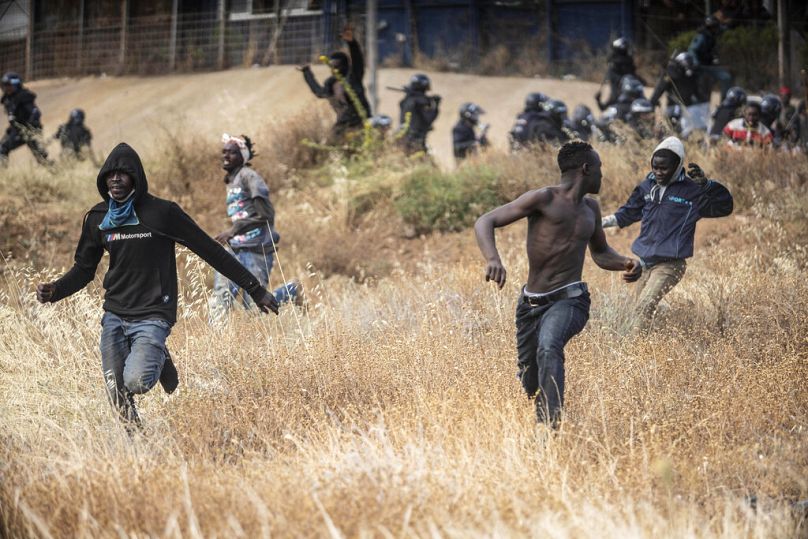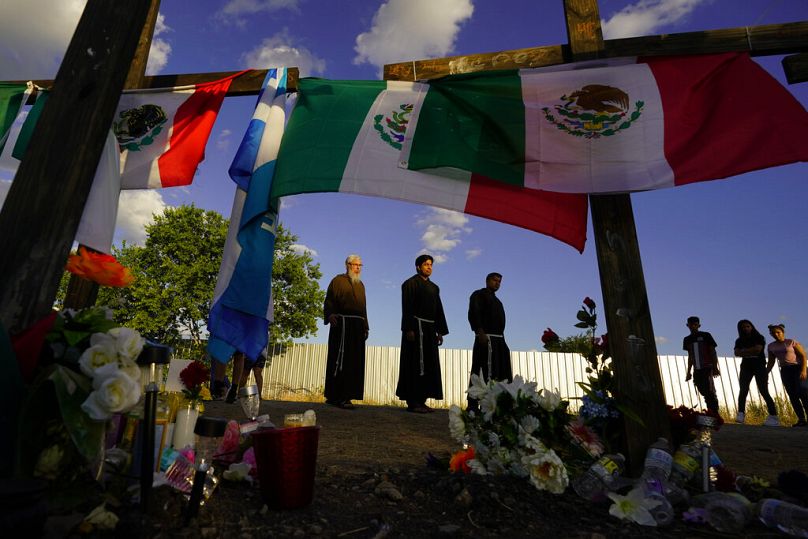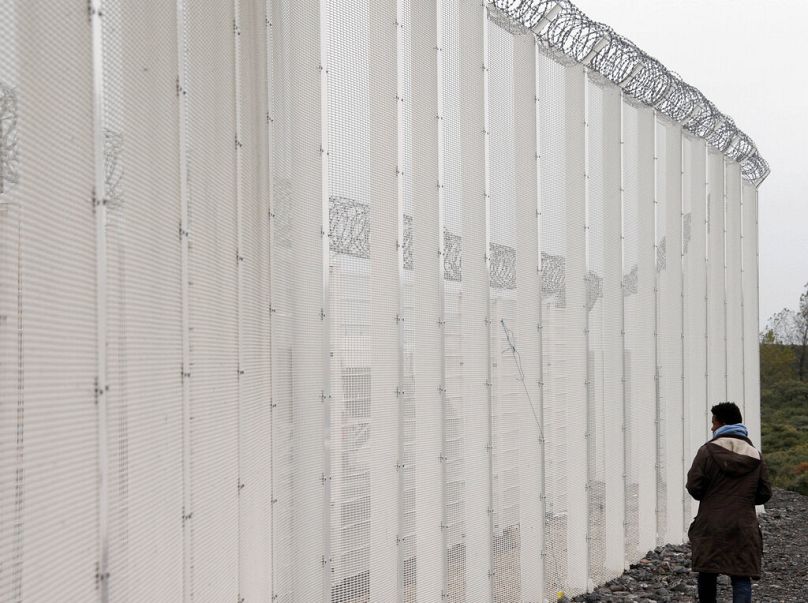To truly disrupt the underpinnings of smuggling networks, mere security enhancements won't cut it. We might find more success in reducing the demand for smuggling services rather than suppressing its supply, Dr Luigi Achilli writes.
The ongoing migration and refugee crises dominate discussions among EU and US political leaders. As tensions escalate at the borders, it's high time for a candid conversation about the role of human smuggling in these crises.
Human smugglers, particularly in Europe and North America, are infamous as puppeteers of migration flows, orchestrators of tragic events, and accumulators of vast wealth built on the desperation of those they "serve".
They're known for their ruthless abandon — leaving people to face the merciless heat of the US-Mexico desert or intentionally sinking their vessels to trigger Mediterranean Sea rescues.
Despite this, the prevailing strategy across most developed nations has been eerily consistent: target smuggling organisations to control migrant inflows and protect potential victims.
However, such measures rarely work as intended. Migrants still suffer, and smuggling operations flourish. Our understanding of smuggling is often one-dimensional, missing its multifaceted nature.
Black-and-white thinking and myopic approaches
For many migrants, smugglers aren't just predators; they are a lifeline, providing the only way out of dire circumstances.
"This is underscored by data from Europol, which suggests that 90% of migrants reaching Europe via irregular routes have relied on smugglers.
To finance these perilous journeys, migrants often tap into their savings, sell assets, or even fund others' trips in hopes of repayment.
While smugglers profit, the morality of their actions is commonly judged more on the quality of their services than their prices.
Contrary to popular belief, smugglers have little incentive to deceive, as trust is essential in their line of work. A US-Mexico border study found that 75% of surveyed deportees in six Mexican cities were satisfied with the smugglers' services.
However, romanticising human smuggling is dangerous. It can manifest as extreme exploitation and violence.
While combating smuggling is crucial from both security and humanitarian perspectives, a sole focus on containment is myopic.
'Cyber coyotes' and fragile rubber dinghies
In response to increased border enforcement, smugglers have adapted their strategies, often choosing lengthier and more perilous routes.
While these changes mitigate risks for the smugglers, they exacerbate dangers for migrants.
For instance, in Mexico and Central America, the emergence of "cyber coyotes" has been notable. Instead of physically accompanying migrants, these facilitators guide them via cell phones — a method birthed as a reaction to heightened US border patrols.
This shift has led to increased chances of migrants getting lost and falling victim to the unforgiving desert elements.
Similarly, in the Mediterranean, to avoid detection, smugglers keep their distance, leaving migrants to navigate boats on their own.
In a bid to cut costs, they often resort to using fragile rubber dinghies instead of more durable and safer vessels.
These might be sufficient for short distances, such as between Western Turkey and the Eastern Greek islands, but boats leaving Libya typically have just enough fuel to reach international waters.
These tactics, while designed to dodge authorities, heighten the chances of maritime mishaps, increasing the risk of migrants facing engine failures amidst turbulent seas.
It's evident that anti-smuggling measures, from a cost-benefit standpoint, have been less than optimal. Enormous patrol areas, mounting expenses, and the inevitable diversion of migrant routes underscore this inefficacy.
So, what's the solution?
To truly disrupt the underpinnings of smuggling networks, mere security enhancements won't cut it. We might find more success in reducing the demand for smuggling services rather than suppressing its supply.
This means not only crafting new, legal avenues for entry but also fortifying the existing channels, particularly for refugees and asylum seekers — a substantial segment of the smuggled demographic.
But why not also rethink our stance on free movement?
In today's political milieu, the mere suggestion of eliminating borders is met with scepticism, if not outright opposition.
Even ardent supporters of migrant rights often stop short of advocating for unfettered access, particularly for those deemed economically undesirable.
Yet, isn't it time we seriously considered this? After all, in an intricately interconnected global landscape, why shouldn't human mobility mirror the seamless flow of goods and services?
Dr Luigi Achilli is a part-time assistant professor at the European University Institute (EUI) in Florence and a senior researcher at its Migration Policy Centre.
At Euronews, we believe all views matter. Contact us at view@euronews.com to send pitches or submissions and be part of the conversation.



